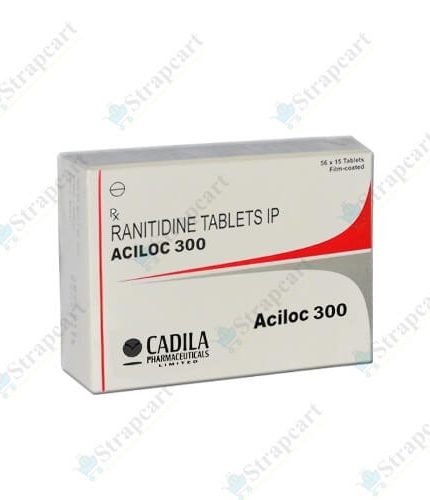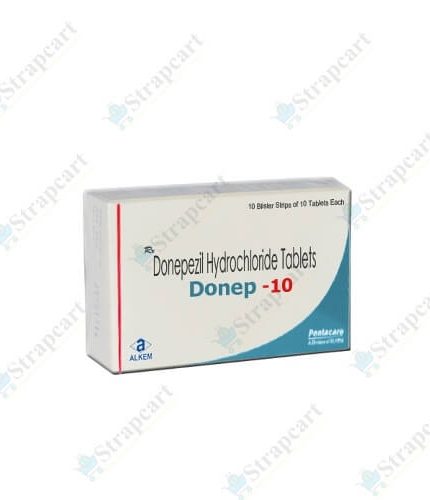Key Point
The state of our skin ought to be our first concern. It is essential to safeguard it from potential harm, particularly during difficult and critical times. The onset of winter intensifies this concern, as dry skin can lead to more serious complications.
Symptoms such as itching and skin deterioration can cause significant discomfort. In some cases, this may even result in bleeding, which can be quite alarming. Products like Eukroma Cream
can offer relief from these issues. Additionally, we will look at natural ways to treat skin issues in the winter. We will evaluate effective strategies for hydrating dry skin to shield it from damage throughout the winter season.
Dry skin is a common challenge for many individuals during the winter, with the intensity of symptoms varying widely. Numerous treatments are available to restore moisture to the skin and alleviate discomfort. Additionally, individuals can adopt specific measures to prevent their skin from becoming excessively dry. This article will delve deeper into the topic of dry winter skin, examining its causes, symptoms, prevention strategies, and treatment options.
What Makes Skin Dry In The Winter?
Winter brings about variations in humidity and temperature that create favorable conditions for the onset of dry skin, clinically known as xerosis.
The epidermis, which is the outermost layer of the skin, features the stratum corneum as its delicate outer surface, often referred to as the skin barrier.
This barrier is made up of a combination of lipids and both dying and dead skin cells, forming a protective shield that defends the body against harmful toxins. Any damage to this skin barrier can lead to a dry or irritated appearance.
For the skin barrier to function effectively, it requires sufficient moisture. Studies have shown that during the winter months, the skin retains less moisture than in the summer, accompanied by a decrease in lipids within the skin barrier. These changes are key factors contributing to dryness and irritation.
During colder months, individuals often increase indoor heating, which lowers humidity levels and affects the moisture available to the skin. At the same time, the cold outdoor environment, along with strong winds and rain, can strip the skin of its natural moisturizing oils.
Moreover, taking hot baths or showers can damage the skin’s surface, resulting in heightened dryness, as highlighted by the Baylor College of Medicine. The use of harsh soaps and aggressive drying methods can further worsen skin damage.
Moisture levels in the skin are also affected by various factors, including age, gender, ethnicity, and environmental conditions, while certain medical conditions may additionally play a role in the development of dry skin.
Signs Of Dry Skin In The Winter
Flaking
Rough patches
Cracks
Redness, in lighter skin tones
Itching
Stinging
A raw, sensitive-to-the-touch feeling
Individuals may experience several symptoms simultaneously. Effective treatment is anticipated to reduce their severity.
Hydrating From The Inside Out Is Essential
You will find that effective topical treatments, including Tretinoin, can greatly enhance the appearance of your skin. Numerous individuals apply it during the winter season to safeguard against skin damage. Furthermore, it contributes to skin hydration. However, to attain significant and lasting results, it is crucial to maintain adequate internal hydration.
After Taking A Bath, Apply A Thick Moisturizer

Regularly moisturizing your skin is essential during the winter months. Various thick Melalite Forte Cream are available to assist in this process. Utilizing standard moisturizing creams and applying them consistently after bathing will aid in retaining moisture in your skin. This practice not only enhances your appearance but also minimizes the risk of dry skin damage and potential itchiness during the winter season. If your skin is already damaged and experiencing significant distress due to dryness, you may consider applying Triluma Cream or Benoquin Cream as an initial treatment.
Wintertime Dry Skin Treatment
Dry and damaged skin necessitates sufficient moisture restoration. It is recommended to adopt a simple skincare routine when dealing with dry skin concerns. A streamlined regimen reduces the likelihood of overwhelming the skin with unnecessary products, including toners, serums, and heavy makeup.
The most effective approach to rehydrate the skin and prevent moisture depletion is through the use of a moisturizer. Typically, thick, fragrance-free moisturizers are the most appropriate option. Conversely, lighter gels, lotions, and Pasitrex Ointment may provoke irritation in sensitive skin.
Moisturizers that incorporate emollients, such as linoleic, linolenic, and lauric acids, can improve the skin’s texture by filling the voids between skin cells that have lost moisture.
Furthermore, humectants found in moisturizers are essential for attracting moisture to the skin. Examples of humectants include:

Supplementary ingredients such as lanolin, silicone, and mineral oil play a crucial role in retaining moisture within the skin. Additionally, they form a barrier that helps to shield the skin from environmental damage.
The American Academy of Dermatology Association highlights the importance of applying moisturizer immediately after gently patting the skin dry following a shower or bath. This practice maximizes moisture retention.
| Information |
| Ensuring adequate hydration is crucial for attaining glowing and healthy skin. This is especially vital during the winter months when it is advisable to increase water consumption. It is suggested that individuals aim for at least 11 to 12 glasses of water each day during this time. |
Moreover, adding certain dried fruits to your diet can further improve hydration. For instance, walnuts serve as a superb source of moisture. Additionally, incorporating salmon into your meals offers a substantial amount of Aceret 25mg. These dietary selections aid in moisture retention, thereby enhancing the overall condition of your skin.
How To Prevent Wintertime Dry Skin

As the seasons change, individuals can alleviate the impact of dry winter skin by adopting the following measures:
Adjusting skincare routines: The skin requires different care during the winter months, which includes the use of a richer moisturizer. It is also advisable to decrease the frequency of exfoliating scrubs, facial masks, and steam treatments to maintain the skin barrier’s integrity.
Ensuring proper hydration: Drinking sufficient water is essential for skin hydration, leading to a more refined appearance. Additionally, incorporating foods or supplements that are high in Anovate Cream acids can be advantageous.
Employing a humidifier: This device can introduce moisture into the air, assisting in the rehydration of the skin’s surface. Alternatively, placing a bowl of water on a radiator allows the heat to release water vapor into the surrounding environment.
Limiting heat exposure: This can be achieved by choosing lukewarm baths or showers instead of hot ones and by minimizing time spent near fires or heaters. Overheating can cause the skin to lose essential moisture.
Protecting the skin with suitable clothing: Many individuals notice increased dryness in their hands, particularly due to frequent hand washing and sanitizing. Wearing gloves in cold weather and while washing dishes can help prevent the skin from becoming dehydrated.
|
Medicines |
Tablet | Price | Price/Unit |
Buy Now |
|
Tenovate Cream |
9-tube-s | $46 | $5.11 | |
|
Permite Cream |
9-tube-s | $40 | $4.44 | |
| Skinshine Cream |
9-tube-s |
$55 | $6.11 |
Don’t Take Hot Showers
During the winter season, a hot shower may provide a sense of comfort. However, while this momentary relief can be pleasurable, it may negatively impact the condition of your dry skin. To ensure effective skincare, it is recommended to avoid the use of hot water for bathing.
Hot water can remove the natural oils that are essential for safeguarding your skin against damage and dryness. The loss of these crucial oils may result in heightened discomfort in the days that follow.
Additionally, it is advisable to keep your shower time to 10 minutes or less. Choosing a shower lasting 8 to 9 minutes with lukewarm water facilitates daily cleansing while reducing the likelihood of skin damage. This approach can assist in preserving healthy skin, especially during the winter months when dryness is most pronounced.
Make Use of Gentle Cleaners
Maintaining an appropriate cleansing routine is essential, particularly for those who travel to work on a daily basis. The environmental contaminants we encounter can accumulate on our skin and within our bodies, making thorough cleansing imperative for various reasons.
It is equally important to select mild cleansers that minimize the likelihood of adverse effects on dry skin. These formulations not only address the harmful pollutants in your system but also safeguard your skin from potential damage.
Following the cleansing process, it is advisable to apply a moisturizing Kojic Acid Cream, such as Melacare Cream. This product aids in hydrating the skin and helps prevent long-term damage, especially during the colder seasons.
Adding A Humidifier Is An Option.
Inventors, in arid conditions, it is advisable to seek support in making necessary modifications. This is especially advantageous for those suffering from extreme skin dryness, as a humidifier can provide considerable relief. It aids in preserving moisture within your environment.
The long-term impact of dry weather on your skin can be significantly mitigated. This is particularly crucial in colder areas where heating systems are operational. These heaters often generate excessively dry air, which can negatively impact your skin. To alleviate this issue, employing a humidifier can effectively counterbalance the drying effects produced by the heating systems.
Put On Protective Wear
It is imperative to don protective attire for your dry skin throughout the winter season. Shielding your skin from sudden blasts of cold wind and the pervasive dryness in your surroundings is of utmost importance.
Wearing long-sleeved garments can offer further defense for your dry skin. It is advisable to cover sensitive areas such as the neck and ears to avert potential harm. Additionally, protecting yourself from UV radiation remains essential, even during daylight hours in winter.
One should not overlook the effects of UV rays, even in lower temperatures. Although tretinoin 0.1 cream can be beneficial in managing your skin condition during the winter months, it is still crucial to limit direct exposure to UV rays. The use of sunscreen is also recommended. These precautions will greatly assist in preventing dry skin complications and other associated issues during the winter period.
Avoid Being Around Irritants
Wearing a wool sweater or similar garment without any underlying clothing can exacerbate skin irritation. In winter, dry skin tends to remain parched. Therefore, donning items that further aggravate your skin will only increase discomfort.
It is advisable to avoid wearing woolen sweaters directly against the skin. Instead, wear a layer underneath before putting on woolen garments. This approach will help mitigate irritation and the discomfort it may cause.
Maintain Your Nightly Routines
Establishing effective nighttime routines during the winter months is essential. Applying Placentrex Gel at night can enhance the absorption of the product, thereby improving the condition of your skin.
Additionally, if the issue is not severe, a gentle moisturizer may be utilized. These practices contribute to the overall health of your dry skin during winter and offer protection against potential damage.
When to Contact a Doctor
The condition of many cases of dry skin can be improved by using home remedies. If these remedies do not yield satisfactory results, it is recommended that individuals seek advice from a healthcare professional, such as a pharmacist, physician, or dermatologist. These specialists can offer suitable product recommendations or advise on additional measures.
In Brief |
|
Dry skin during the winter months is not an inevitable consequence of the colder season. By recognizing the importance of the skin barrier and its need for optimal health, individuals can take proactive steps to prevent this uncomfortable condition. While winter can pose significant challenges for the skin, proper care can alleviate dryness, irritation, and discomfort. By comprehending the root causes, identifying potential risk factors, and adopting effective skincare routines, one can ensure that their skin remains soft, smooth, and healthy throughout the winter. If dry skin persists or worsens despite these efforts, it may be advisable to seek professional advice. Consider making an appointment with a dermatologist at Graphic Era Hospital today. Our experienced dermatology team offers personalized care to help you maintain healthy Strapcart, hydrated skin all year round. |











